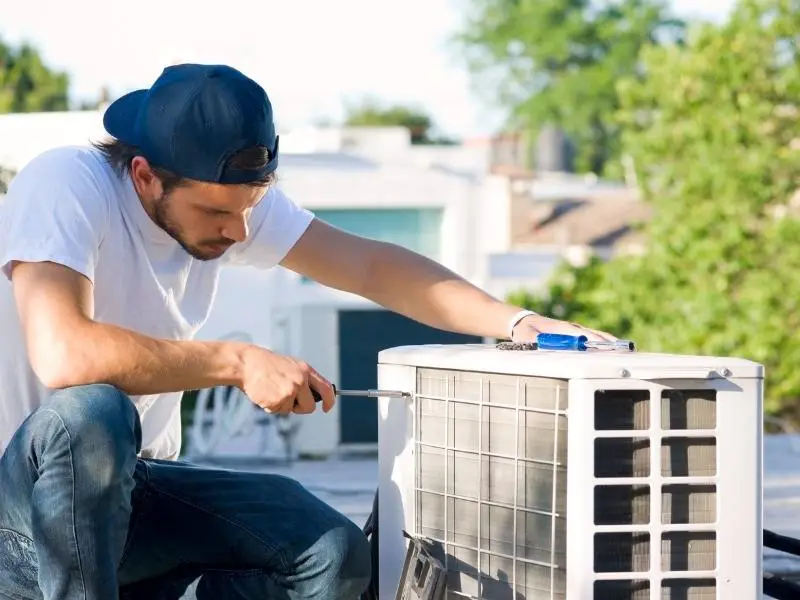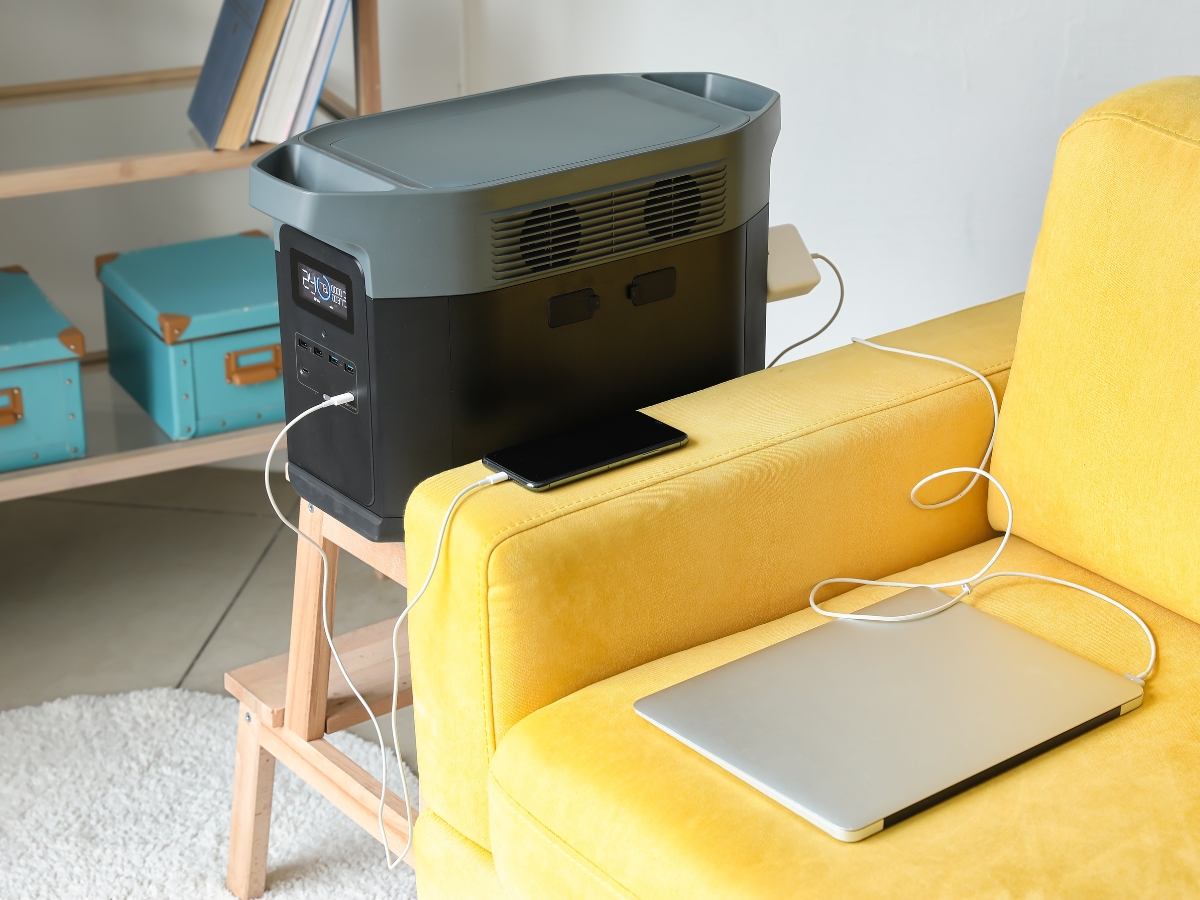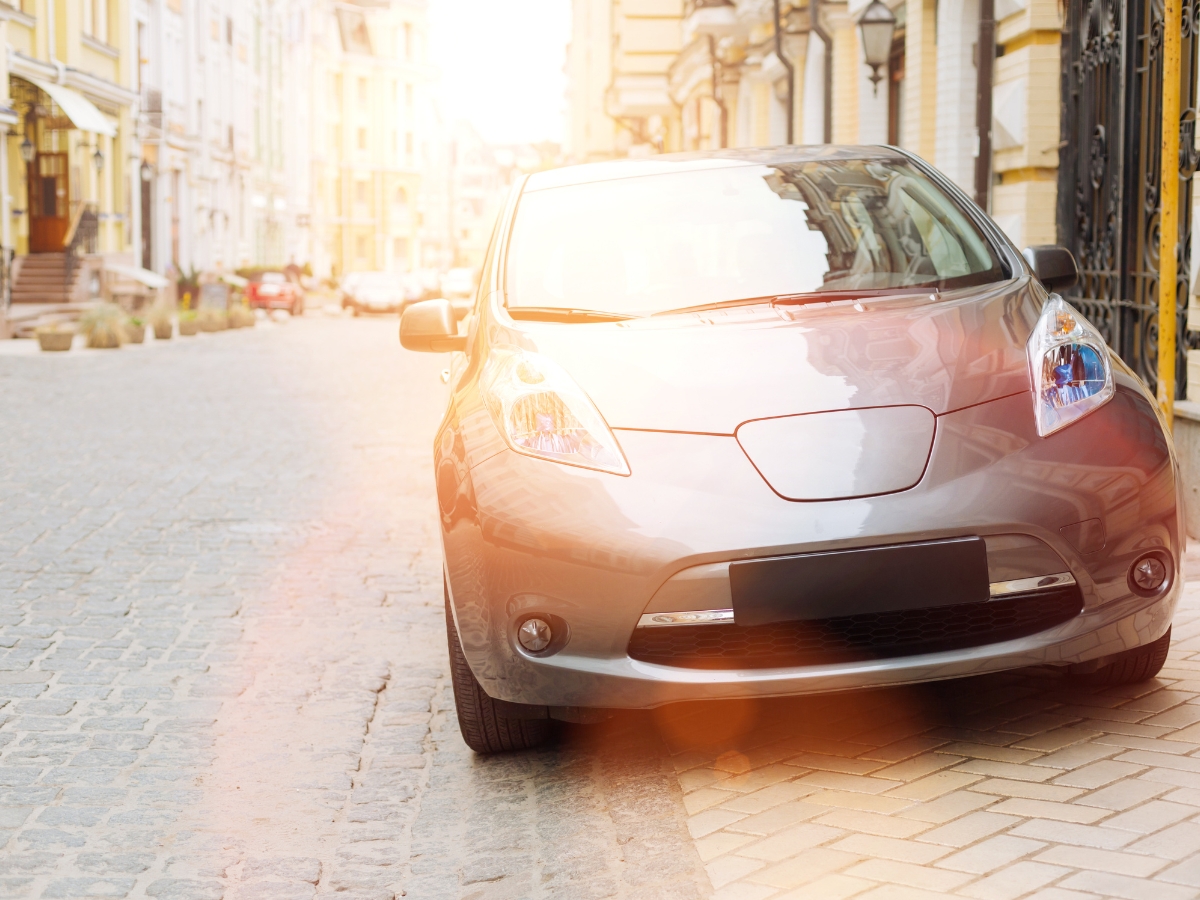Heat pumps have a good lifespan, and over the past few years, their longevity has increased significantly as technology developed, and this has further improved their preference for homeowners
Generally, an air-to-air heat pump that is correctly installed should last about 15-20 years, provided the maintenance is kept up. Still, this lifespan will depend on the extent of usage of the unit and the type of heat pump installed, as geothermal heat pumps can last much longer.
Exploring the lifespan of heat pumps needs to consider the following:
- The types of heat pumps and their lifespans
- Heat pump longevity vs. other HVAC systems
- Maintenance requirements for system longevity
- When to replace your heat pump
Let’s kick this off by examining the various heat pumps and how long they last.

What Are The Different Heat Pump Types?
Heat pumps are available in different varieties, with the most common one being the air-to-air or air source heat pump. This is used as an air-conditioning system in a home where the heat pump will warm or cool the space depending on the climate conditions.
Air Source Heat Pumps
The air-to-water heat pump is the system that is used instead of a boiler or geyser in a home and provides hot water for bathing or underfloor heating. These systems use the same principle as air-to-air systems but deliver hot water instead.
Heat pumps work using thermodynamics by absorbing the heat from the surrounding air and passing it over the coils. The heat pump has two segments, the outdoor and indoor sections.
Outdoors, a liquid refrigerant in the outdoor coils that is much colder than the air around it absorbs the warmth from the air and is then compressed and converted to high-temperature gas.
The gas is then passed through the indoor section of the heat pump, which blows the heat from the gas into the space and the gas then condenses back to a liquid, and the process starts all over again.
Water Source Heat Pumps
Water-source heat pumps use wells, lakes, ponds, or water reservoirs for their heat source instead of air, and these are found where water reserves are available.
These heat pumps work on the same principle as the air source systems, but they absorb heat from the water rather than the air. Considering that water holds temperature far better than air, these systems are excellent where these can be used effectively.
Ground Source Or Geothermal Heat Pumps
This system uses a series of ground loops: pipes containing water or anti-freeze liquid to absorb heat from the earth that is found between 6ft and 10ft for horizontal loops and boreholes that can go down to 400ft or more.
Geothermal heat pumps use the same principles as air and water source systems, but they are more efficient and will outlast most of those systems by some margin.
We will look at that in more detail later in this discussion.
What Are The Different Types Of Hybrid Heat Pumps?
Air source & geothermal hybrid:
These systems use a combination of air and geothermal systems. The air source will be used until the temperatures drop too low and then switch to the geothermal system until the air temperatures recover to operational levels.
Heat pump with gas or oil boiler combination:
This is usually installed where the home has existing infrastructure and offers optimum and consistent heating at maximum efficiency.
Solar Heat Pumps:
Here, solar panels or a PV system power the heat pump instead of electricity. When combined with air-source or geothermal systems, the homeowner can power their entire system without electricity.
Gas-fired or absorption heat pumps:
These are mostly found in industrial applications and are powered by gas or another fuel source other than electricity.
How Long Do Air-Source Heat Pumps Last?
These systems are the most popular amongst heat pumps, and when they are properly sized and correctly installed, they can last around 10-15 years or longer, which would apply to the water-source systems as well.
With any heat pump, the accurate sizing of the heat pump is a critical factor in its longevity.
If the installed heat pump is too small for the living space, it will be overworked and overwhelmed and this will lead to breakdowns and failures that will reduce its lifespan.
This is one of the reasons that it is important to engage the services of a reputable HVAC installer that knows your area well as they will assess the home’s energy load using the Manual J, which is the industry standard in assessing the size of the heat pump required in a home.
They consider several factors that affect the heat load, and those are :
- Size and shape of the home
- Existing levels of insulation
- Number and placement of windows
- Appliances that emit heat
- Number of people in the home
- Local climate conditions
- Preferred home environment
Once the influence of these factors has been calculated, the size of the heat pump will be determined and then installed.
With any HVAC system, whether it’s air conditioning or heat pump, proper and consistent maintenance is required by both the homeowner and the HVAC service provider.
As with your vehicle, the better you take care of it and do the required services, the longer and better it will run.
Of course, no system will last indefinitely, and there may come a time well into its lifespan that you may need to replace your heat pump with a new one, but by that time, you would have recovered your initial investment and then some.
Plus, you may find that in fifteen or twenty years, the technology would have evolved to a more superior level, and the heat pump could be a fraction of the size of the original and have double the lifespan.
How Long Do Geothermal Heat Pumps Last?
When it comes to longevity, the geothermal system is the grand-daddy of heat pumps, and the internal unit can last around 25 years, with the ground loop systems having a lifespan of 50 years!
But why do these systems have a much longer lifespan?
The main reason is that they don’t draw heat from the surrounding air; they are simpler and have fewer moving parts. Another consideration is that the heat source in the ground is extremely consistent and is around the 50°F mark all the time.
The deeper you drill into the ground, the warmer the temperature gets and where you have vertical ground loops sunk. These temperatures far down are considerably higher than those found on the horizontal loops.
Another reason for their longevity is that they can operate with superb efficiency in extreme climates where normal air source heat pumps struggle. This makes their appeal and efficiency greater for homeowners who can utilize this option.
Heat Pump Vs. Air Conditioner Vs. Boiler Longevity
Before we look at this section, one important aspect to consider is the heat pump usage compared to the other systems, especially air conditioning.
Air conditioning systems generally only run in the summer months and when cooling is required, while heat pumps and boilers run all year round.
Which Lasts Longer – Heat Pump Or Air Conditioners?
With this in mind, a heat pump that is well maintained can last 15 years or more, and some better-quality brands can run for 20 or even 25 years before they are finally breakdown.
With heat pumps, the compressor will ultimately fail, which could be replaced with some cost, or the homeowner could opt to replace the whole system.
However, existing data show that air conditioning units also only last for around 10-15 years, the same lifespan as a heat pump. Still, the heat pump will use far less electricity in its lifespan than an air conditioning system.
If you had to use the heat pump for only half the year, the system’s lifetime would double.
Which Has Longer Lifespan: Heat Pump Vs. Boiler?
The lifespan of an average boiler will be around 7-8 years, and more than likely, some of the components like the thermostat or element would have been replaced at least once during that time.
The heat pump has more than double that lifespan, and it is unlikely that major maintenance would be needed in that time. Of course, with time, the compressor will start to wear down and would require replacing toward the end of its life.
What Maintenance Would Be Required For A Heat Pump?
Throughout this discussion, the issue of maintenance has repeatedly been raised, so let’s look at what maintenance would be needed to extend the life of a heat pump and what can be done by the homeowner, and what needs the HVAC technicians.
- Basic maintenance on your heat pump would include removing garden debris such as leaves, grass, twigs, and branches away from the unit and keeping a clear space around it of around eight feet or so.
- Don’t place anything on top of the heat pump, as this will affect the ability of the system to expel heat created during normal operation.
- Defrost your heat pump regularly in the winter so that ice build-up on the coils is removed and allowed to melt off. During this cycle, the heat pump goes into a cooling mode where the hot gas is pumped to the outer coils and melts the ice.
- Clean and clear air filters regularly and according to the manufacturer’s instructions as this will ensure continued and efficient operation and eliminate the risk of breakdown.
- Keep the fins on the outer unit clean so that they can release heat
- Restrict plant growth around the unit to at least 18″ to 2 ft from the heat pump.
- Keep the coils clean from dirt and dust, as this will affect their ability to absorb heat from the air effectively and lead to the unit working harder.
- If you reside in a colder location where the temperature in peak winter can dip below 32°F, consider having a backup heating system, as heat pumps lose efficiency as the temperature drops below 40°F.
- This will lead to your heat pump using more power to generate heat and putting too much strain on the compressor, diminishing the operational longevity.
When Should You Replace Your Heat Pump?
Sadly, nothing runs forever, and there will come a time when your heat pump will finally reach the end of its life.
There are some obvious symptoms to look out for, and when you see these happening, it will be time to consult your HVAC supplier and discuss the replacement options available.
Your System Experiences Ongoing Breakdowns
If it gets to a point where your HVAC technician is being invited for Christmas because he has spent so much time at your home fixing your heat pump, it is time to chat to them about replacement options.
Eventually, the smaller costs to repair the minor issues will evolve into high costs as the core components begin to fail, and at that point, you will need to replace your heat pump.
The Interior Home Environment Starts To Deteriorate
The heat pump’s function is to provide a steady and stable indoor environment with both temperature and air quality. When you find your home becoming more humid or dusty or having unexpected temperature fluctuations, it may be time to replace your heat pump.
Your Energy Costs Start To Increase
Having had your heat pump for at least ten years, you will be accustomed to the level of energy usage and costs per month or over the year.
Should those costs start to rise and are higher in terms of kWh consumption on your utility bills, this is a sign that your heat pump may be coming to the end of its life.
Bear in mind that energy costs will rise with annual increases, so you need to look at the electrical consumption and not just the cost factor.
Your Heat Pump Is Making Unusual Noises
This is a bit like a car that suddenly starts making a noise. While this is not necessarily a life-ending event, you need to consult your HVAC technician to investigate.
Still, if the noise is noticeably more than usual, this could indicate that your heat pump could be coming to the end of its working life.
The heat pump has become one of the most popular systems globally for delivering energy and cost-efficient heating and cooling in homes and businesses.
With a lifespan of between 15 and 20 years for a standard good quality heat pump and even longer than that for geothermal systems, these systems have excellent longevity and are a solid investment for homes and businesses alike.
Resources:



